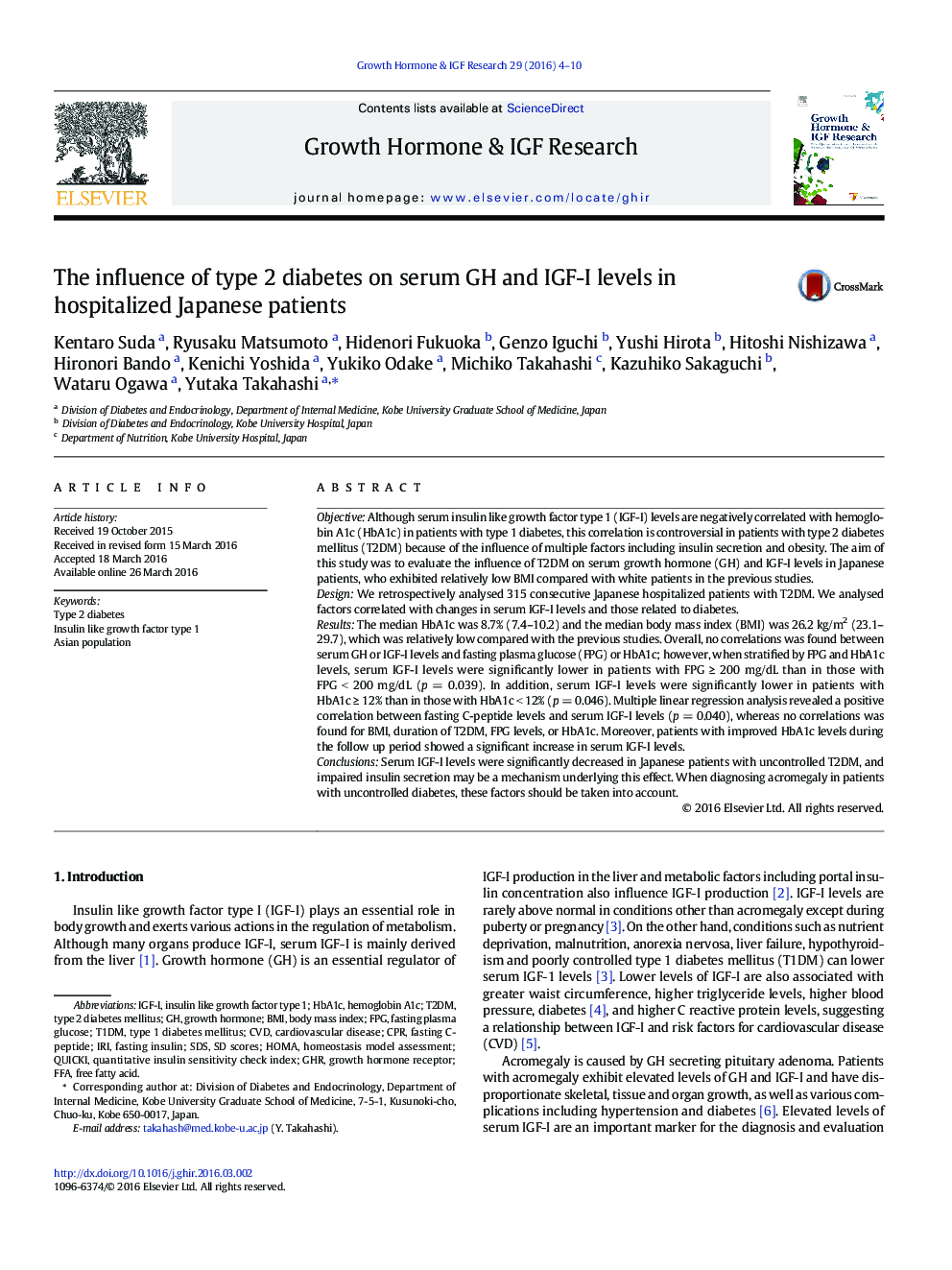| Article ID | Journal | Published Year | Pages | File Type |
|---|---|---|---|---|
| 2802520 | Growth Hormone & IGF Research | 2016 | 7 Pages |
•We evaluated the influence of T2DM on IGF-I levels in hospitalized Japanese patients.•IGF-I levels were significantly lower in patients with FPG ≥ 200 mg/dL.•IGF-I levels were significantly lower in patients with HbA1c ≥ 12%.•IGF-I levels increased in patients with improved HbA1c during the follow up period.•C-peptide levels were independently correlated with IGF-I standard deviation score.
ObjectiveAlthough serum insulin like growth factor type 1 (IGF-I) levels are negatively correlated with hemoglobin A1c (HbA1c) in patients with type 1 diabetes, this correlation is controversial in patients with type 2 diabetes mellitus (T2DM) because of the influence of multiple factors including insulin secretion and obesity. The aim of this study was to evaluate the influence of T2DM on serum growth hormone (GH) and IGF-I levels in Japanese patients, who exhibited relatively low BMI compared with white patients in the previous studies.DesignWe retrospectively analysed 315 consecutive Japanese hospitalized patients with T2DM. We analysed factors correlated with changes in serum IGF-I levels and those related to diabetes.ResultsThe median HbA1c was 8.7% (7.4–10.2) and the median body mass index (BMI) was 26.2 kg/m2 (23.1–29.7), which was relatively low compared with the previous studies. Overall, no correlations was found between serum GH or IGF-I levels and fasting plasma glucose (FPG) or HbA1c; however, when stratified by FPG and HbA1c levels, serum IGF-I levels were significantly lower in patients with FPG ≥ 200 mg/dL than in those with FPG < 200 mg/dL (p = 0.039). In addition, serum IGF-I levels were significantly lower in patients with HbA1c ≥ 12% than in those with HbA1c < 12% (p = 0.046). Multiple linear regression analysis revealed a positive correlation between fasting C-peptide levels and serum IGF-I levels (p = 0.040), whereas no correlations was found for BMI, duration of T2DM, FPG levels, or HbA1c. Moreover, patients with improved HbA1c levels during the follow up period showed a significant increase in serum IGF-I levels.ConclusionsSerum IGF-I levels were significantly decreased in Japanese patients with uncontrolled T2DM, and impaired insulin secretion may be a mechanism underlying this effect. When diagnosing acromegaly in patients with uncontrolled diabetes, these factors should be taken into account.
